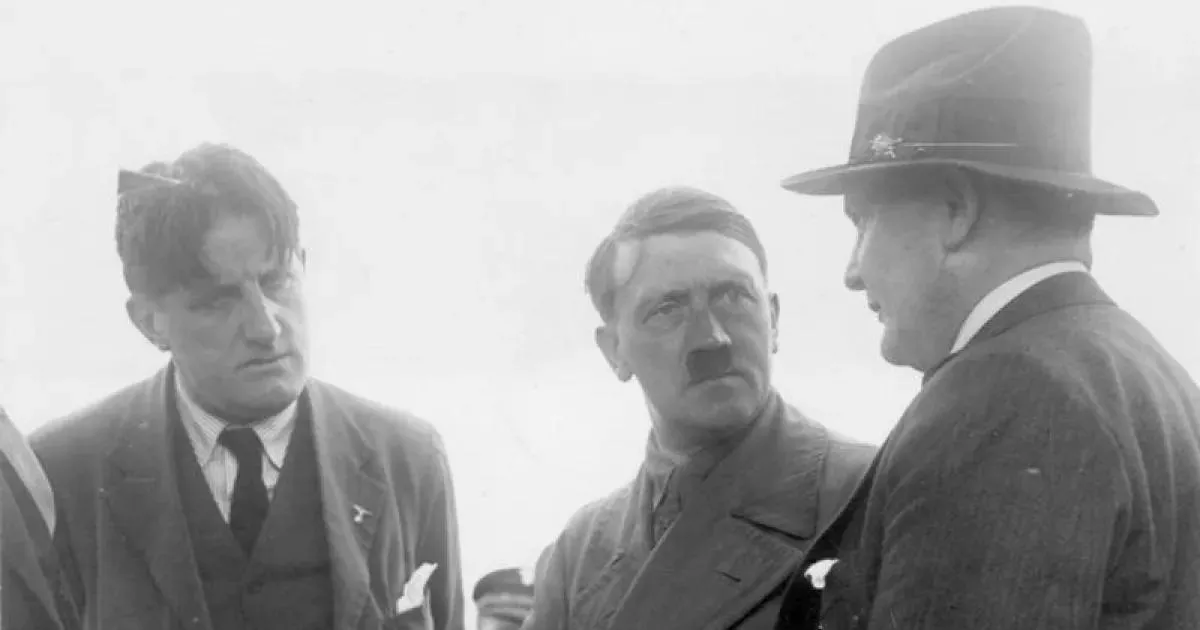Life is full of challenges, and Adolf Hitler's rise to power faced many. Discover key struggles and how they were overcome.
Adolf Hitler's ascent to power began in 1919 when he joined the German Workers' Party, which he transformed into the Nazi Party and became its leader in 1921. Exploiting the Weimar Republic's instability, Hitler gained popularity through propaganda and promises of national restoration. While initially espousing some anti-capitalist ideas, he later purged those elements to gain support from industrialists. Key to consolidating his authority were ruthless tactics, including the Night of the Long Knives, which eliminated internal opposition and solidified his control over the Nazi Party.
June 1921: Mutiny within the Nazi Party
In June 1921, while Hitler was on a fundraising trip to Berlin, a mutiny broke out within the Nazi Party in Munich, with members wanting to merge with the German Socialist Party (DSP).
January 1922: Hitler sentenced to imprisonment
In January 1922, Hitler was sentenced to three months' imprisonment for "breach of the peace" related to his actions at the Hofbräuhaus. He served a little over one month at Stadelheim Prison in Munich.
May 1923: Renaming of Stabswache and failed coup attempt
In May 1923, the Stabswache was renamed to Stoßtrupp-Hitler. Inspired by Benito Mussolini's March on Rome, Hitler planned a coup d'état. Small Reichswehr elements aided the SA in illegally obtaining weaponry, but the order to march was canceled after Army General Otto von Lossow warned Hitler of Reichswehr opposition.
November 1923: Beer Hall Putsch and Hitler's Arrest
On November 8-9, 1923, Hitler led the Beer Hall Putsch in Munich, attempting to depose Bavarian government officials and establish a base for marching on Berlin. Around 2,000 Nazi Party members marched to Marienplatz but were stopped by police. Sixteen Nazis and four officers died. Hitler was arrested on November 11, 1923 and charged with high treason.
1923: Beer Hall Putsch and Imprisonment
In 1923, Hitler attempted a coup d'état known as the Beer Hall Putsch in Munich but was imprisoned. He used this time to write Mein Kampf.
February 1924: Trial for high treason begins
In February 1924, Hitler's trial for high treason began. He attempted to put democracy and the Weimar Republic on trial, portraying them as traitors.
December 1924: Loss of seats in the December federal election
In the December 1924 federal election, the National Socialist Freedom Movement lost 18 seats, retaining only 14, with 3% of the electorate voting for Hitler's party.
April 1925: Renunciation of Austrian citizenship
On April 7, 1925, under the threat of deportation to Austria, Hitler formally renounced his Austrian citizenship. He would not acquire German citizenship until almost seven years later, preventing him from running for public office.
May 1928: Poor results for the Nazi Party in federal election
In May 1928, the Nazi Party secured only 12 seats in the Reichstag. Due to these poor results, Hitler decided Germans needed to know more about his goals, and wrote a second book.
1929: Wall Street Crash and Economic Crisis
The Wall Street crash of 1929 dramatically affected the German political landscape, triggering the Great Depression, halting the German economy, and further polarizing German politics.
April 1932: Banning of Nazi Party Paramilitaries
On April 13, 1932, following the presidential elections, the German government banned the Nazi Party paramilitaries, the SA and the SS, on the basis of the Emergency Decree for the Preservation of State Authority. This ban was later lifted on June 16 by Franz von Papen.
April 1932: Presidential Election Loss and Street Fights
Throughout February and April 1932, street fights and beer hall battles resulted in deaths amidst Adolf Hitler's presidential election competition against Hindenburg. On April 10, 1932, Hitler lost the election to Paul von Hindenburg.
November 1932: Nazi Party Losses in Election
In the November 1932 election, the Nazi Party lost 35 seats but remained the Reichstag's largest party, with 196 seats. The Social Democrats (SPD) and Communists (KPD) also won seats.
1932: Political parties failed to block Nazis
In 1932, the political parties in the Weimar Republic failed to stop the rise of the Nazis. The Catholic Centre Party negotiated with the Nazis, and the Communists prioritized destroying the Social Democrats.
February 1933: Reichstag Fire and Decree
In February 1933, the Reichstag was set on fire, and Hitler used this as a pretext to pass the Reichstag Fire Decree, curtailing civil liberties and rights.
1934: Papen's Role and Subsequent Departure
In 1934, Papen served as Vice-Chancellor, initially speaking out against Nazi excesses. However, after narrowly escaping death in the Night of the Long Knives, he ceased criticism and was sent to Vienna as German ambassador.
Mentioned in this timeline
Germany officially the Federal Republic of Germany is a nation...

Books are a means of storing information as text or...

War is defined as an armed conflict involving the armed...

Fire is a rapid oxidation process called combustion releasing heat...

Moscow is the capital and largest city of Russia located...

A funeral is a ceremony for the final disposition of...
Trending

38 minutes ago BAFTA faces backlash after racist slur incident; Alan Cumming show impacted.
39 minutes ago Julian Champagnie's Future with Spurs Uncertain Amidst Rumors, Showed Instrumental Role

39 minutes ago Celtics Dominate Suns; Jaylen Brown's Injury Status Updated Before Nuggets Game.

39 minutes ago FBI Investigated Susie Wiles; Obtained Phone Records During Investigation, Sources Say

40 minutes ago LeAnn Rimes Recreates Iconic 'Coyote Ugly' Scene with '9-1-1: Nashville' Cast on Bar

2 hours ago Blair Underwood Discusses Fame, Staying True, and Almost Passing on 'Set It Off'
Popular

Jesse Jackson is an American civil rights activist politician and...

Susan Rice is an American diplomat and public official prominent...

Barack Obama the th U S President - was the...

XXXTentacion born Jahseh Dwayne Ricardo Onfroy was a controversial yet...

Michael Joseph Jackson the King of Pop was a highly...

Kashyap Pramod Patel is an American lawyer who became the...

